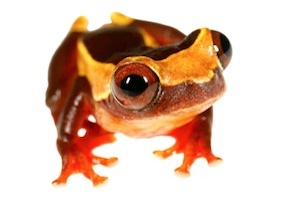Rain Frog for Sale: Boost Your Collection with Uncommon and Unique Amphibians!
Rain Frog for Sale: Boost Your Collection with Uncommon and Unique Amphibians!
Blog Article
Common Health Issues in Reptiles: Symptoms and Solutions
In the intricate globe of reptile care, comprehending the common wellness issues that might impact these unique animals is extremely important in ensuring their health. Whether it's grappling with parasitic invasions, navigating dehydration worries, or dealing with skin conditions that manifest in subtle means, being attuned to the symptoms and equipped with the understanding of reliable services is crucial for any type of reptile proprietor.
Breathing Infections
Respiratory infections in reptiles can significantly impact their general health and wellness and need prompt focus from seasoned vets. In reptiles, breathing infections can be particularly challenging to detect and deal with due to their distinct anatomy and physiology.
Therapy for breathing infections in reptiles usually involves a mix of helpful care, such as keeping proper moisture levels and temperature level slopes in the enclosure, in addition to targeted medication to deal with the specific pathogen liable for the infection. It is vital for reptile owners to check their family pets closely for any type of signs of respiratory system distress and seek vet care at the earliest indicator of a problem. With timely treatment and appropriate therapy, many reptiles can recoup fully from respiratory system infections and resume regular tasks.

Metabolic Bone Illness
What variables add to the development of Metabolic Bone Illness in reptiles?
Metabolic Bone Illness (MBD) in reptiles is mainly brought on by an absence of proper calcium, phosphorus, and vitamin D3 levels in their diet. When reptiles do not get appropriate calcium, either via their food or proper UVB exposure for vitamin D3 synthesis, they are at a high risk of establishing MBD. Reptiles with diet plans reduced in calcium or unbalanced calcium to phosphorus proportions are specifically at risk. Additionally, inadequate exposure to UVB light avoids reptiles from synthesizing vitamin D3, which is important for calcium absorption and bone wellness.
Insufficient moisture degrees can likewise impact a reptile's capability to metabolize calcium efficiently. Normal veterinary exams, proper husbandry techniques, and a well balanced diet regimen are important to prevent Metabolic Bone Condition in reptiles.
Parasitic Problems
Parasitic invasions present a significant wellness risk to reptiles, influencing their overall wellness and calling for timely vet focus. Reptiles can be affected by numerous bloodsuckers, including mites, ticks, inner worms, and protozoa. These bloodsuckers can cause a series of signs and symptoms, such as weight management, sleepiness, skin irritation, diarrhea, and also fatality if left neglected.
One common bloodsucker located in reptiles is the mite, which can cause skin tension, anemia, and inflammation. Ticks are an additional exterior parasite that can transmit illness and trigger pain to the reptile. Inner bloodsuckers like worms and protozoa can cause digestive system issues, poor nutrition, and compromise the reptile's immune system.
To identify a parasitic invasion, a veterinarian may carry out fecal tests, skin scrapings, or blood tests. Treatment typically includes deworming medicines, antiparasitic baths, or in severe cases, a hospital stay. Preventative measures such as normal vet examinations, appropriate hygiene, and quarantine treatments for brand-new reptiles can aid lessen the danger of parasitic infestations and guarantee the wellness of reptile animals.
Dehydration and Hydration Issues
Dehydration in reptiles can substantially affect their health and well-being, necessitating prompt intervention and appropriate hydration monitoring. Reptiles are susceptible to dehydration because of various variables such as poor water intake, high ecological temperature levels, and specific wellness problems. Symptoms of dehydration in reptiles consist of sunken eyes, lethargy, loss of skin flexibility, and decreased peeing. If left unattended, dehydration can cause serious wellness problems and also be fatal to the reptile.
To avoid dehydration, reptile proprietors should make sure click for source that their pets have accessibility to tidy water whatsoever times. The water meal should be big sufficient for the reptile to soak in if needed, particularly for varieties that absorb water with their skin. Furthermore, preserving correct humidity levels in the reptile's room and giving regular baths can assist prevent dehydration.
In cases of dehydration, it is vital to seek veterinary care immediately. A vet may provide fluids either by mouth or via shots to rehydrate the reptile. It is necessary to attend to the underlying reason of dehydration to prevent reoccurrence and make sure the reptile's total health.
Skin Ailments

Final Thought

Breathing infections in reptiles can considerably influence their general wellness and need punctual interest from seasoned veterinarians (rain frog for sale). Preventative actions such as routine vet check-ups, appropriate hygiene, and quarantine treatments for brand-new reptiles can assist lessen the risk of parasitic problems and make sure the health of reptile animals
If left untreated, dehydration can lead to severe health problems and also be deadly to the reptile.
Frequently evaluating your reptile for any modifications in skin color, structure, or look can aid in early detection and therapy of skin disorders, advertising the overall health and wellness and wellness of your scaly buddy. - rain frog for sale
In final thought, reptiles are vulnerable to numerous health issues such as breathing infections, metabolic bone illness, parasitical problems, dehydration, and skin disorders.
Report this page